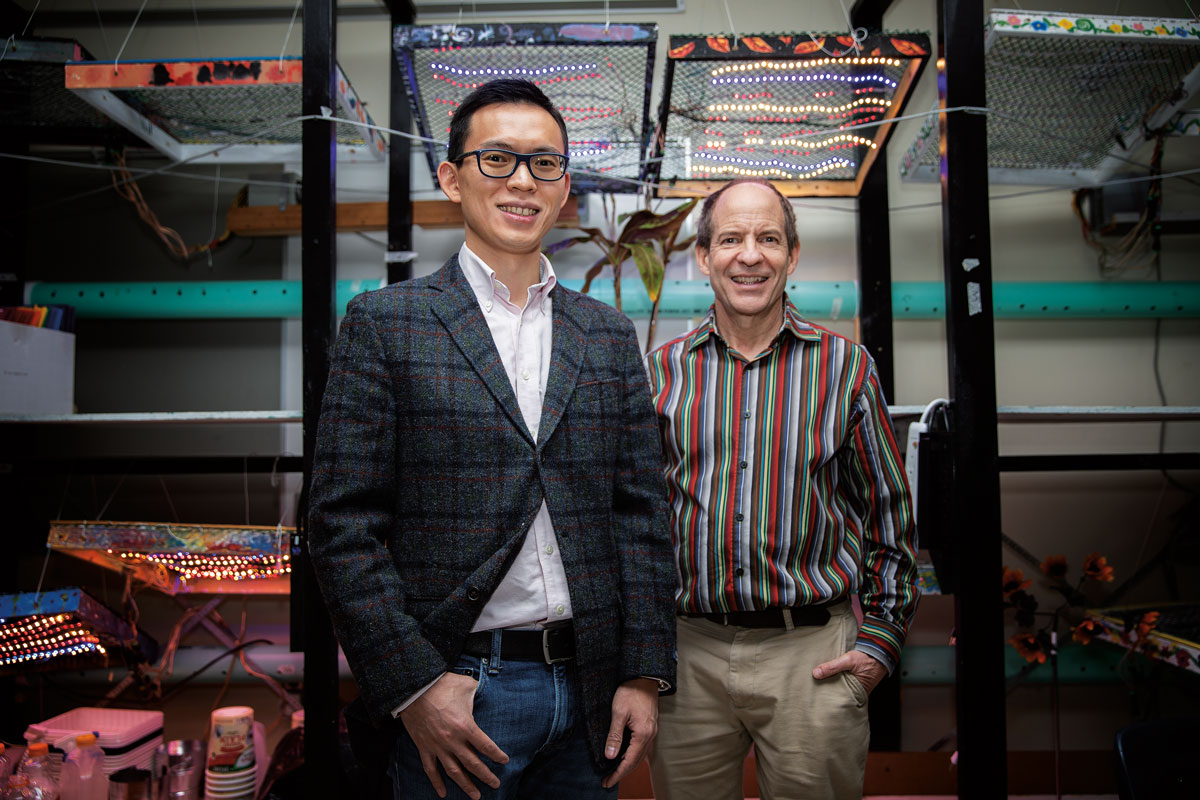To meet a state science standard, ninth graders in Minnesota must learn about energy sources. Teachers at Minneapolis South High School took a new approach last year, using technology that combined the required topics with discussions about the Green New Deal.
Participating in research with Bodong Chen, associate professor of curriculum and instruction, students used the Knowledge Forum tool to ask questions, post articles and information, and annotate points of interest to deepen their discussions. The format made the subject matter richer and more relevant to students, while giving teachers the opportunity to improve the tool’s use for secondary instruction.
Chen, the Bonnie Westby Huebner Chair in Education & Technology, leads this National Science Foundation–funded research project, called IdeaMagnets. It’s part of his work to discover novel ways to use technology that advances teaching and learning.
“I think this type of learning makes it more relevant to learners,” Chen says. “When we look at the discussions produced in the students’ forum, it’s much, much deeper than just answering a quiz. It’s nuanced and holistic and it connects to what they are experiencing in their lives. It’s preparing them for the future.”
Chen joined the CEHD faculty in 2015 after completing his PhD in learning sciences from the University of Toronto, building on his background in educational technology. The position was the first job he applied for and the one he truly wanted—even though the University had closed for extreme cold during his interviews. That didn’t deter Chen.
He was excited to shape the college’s offerings in learning analytics, a field he’s been involved with since its beginnings in the early 2010s. Chen focuses on leveraging massive amounts of educational data being produced in K-12 schools, aiming to understand how students and teachers most effectively use emerging technology.
“Now learning happens in different spaces and places and different data is produced. But if we don’t use the data to better understand, it’s a waste,” Chen says. “We want to mobilize data and analytics to make educational decisions more informed and make more holistic assessments.”
Chen also concentrates on computer-supported collaborative learning, inquiry-based learning, and developing students’ higher-order thinking. He calls on his experiences growing up in China, with its emphasis on high-stakes testing, and research about Canadian and American educational approaches. Now with his oldest child entering kindergarten and a baby at home, Chen is eager to participate in the schools as a parent, too.
Overall, Chen aims to help shift education systems to address a future where students aren’t as geared to learn for employment, thanks to automation. Instead, they will focus on other skills, such as higher-order thinking, social and emotional learning, and problem-solving.
“I believe in the potential of pushing the boundaries of traditional beliefs that we have about what learners can achieve and think about what’s possible for the youngest grades in education,” he says.
To that end, Chen has gotten involved in the multidisciplinary Learning Informatics Lab. The newly formed lab will tackle some of the college’s broader goals by bringing together specialists from educational psychology, special education, and curriculum and instruction, as well as from other colleges.
Together, they will concentrate on shared interests in learning analytics and educational technology, perhaps designing better analytical tools using human/computer interaction. “There are a lot of details to be finalized,” Chen says, “but it’s very exciting to us all.”
Story by Suzy Frisch | Winter 2020
Learn more about Bodong Chen and his work.
 Bodong Chen with Minneapolis South High School teacher David Groos. Chen is working with South High School to discover ways to use technology to advance teaching and learning. Photo by Greg Helgeson
Bodong Chen with Minneapolis South High School teacher David Groos. Chen is working with South High School to discover ways to use technology to advance teaching and learning. Photo by Greg Helgeson